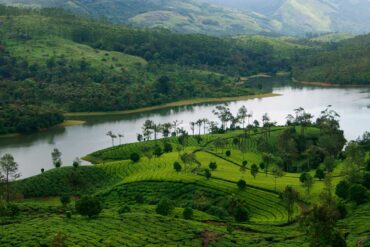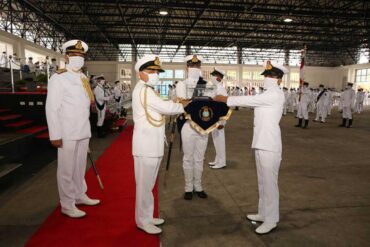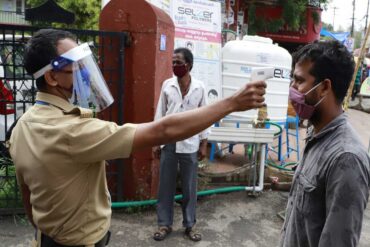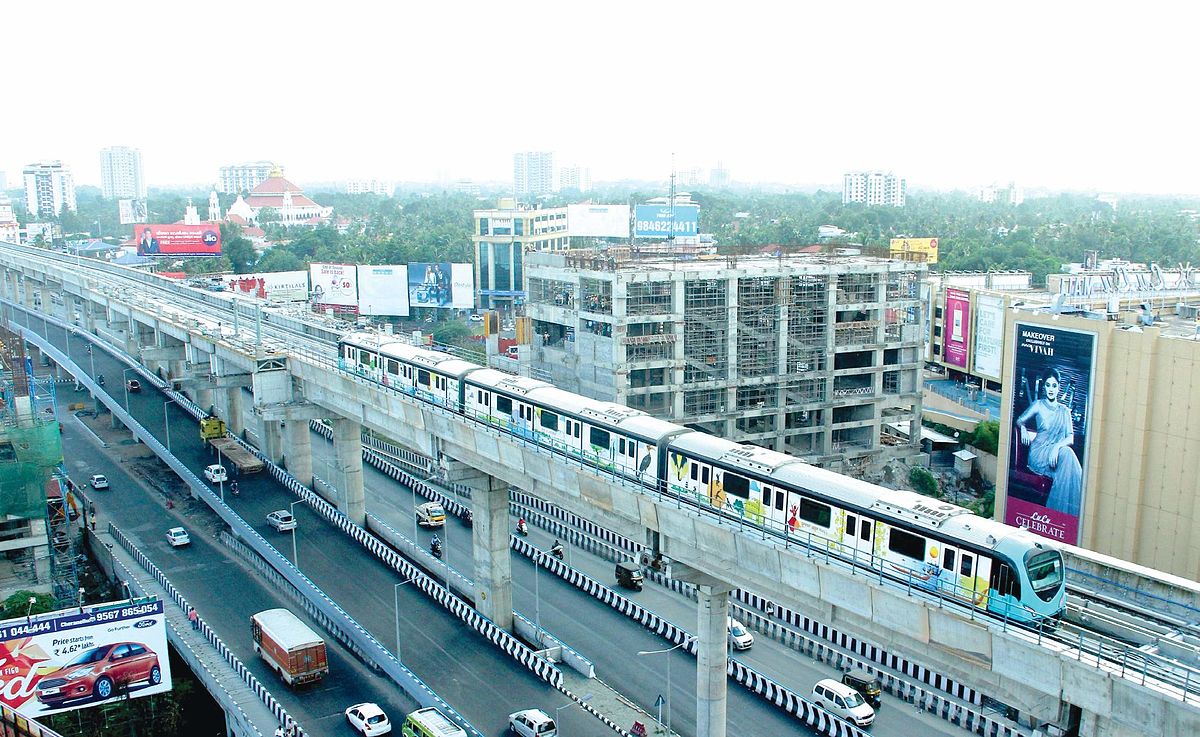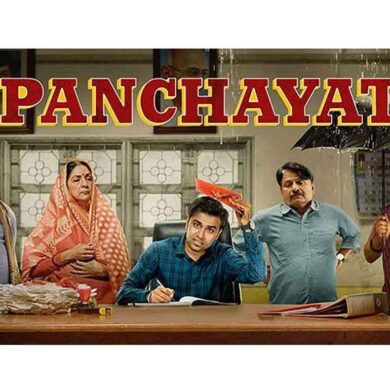Kochi Metro has been declared fit for service by Chief Metro Rail Commissioner on May 10. Even though the Rs. 5,180 crore project was meant to run 25 km from Aluva to Petta, the opening, which could happen in a month or so would see the train service operating at a distance of 13.4 km from Aluva to Palarivattom.
Yesterday,Chief Minister, Pinarayi Vijayan on his official Facebook account announced that, state government has not fixed a date for the inauguration of the Metro Rail Services and has written to Prime Minister Narendra Modi for his convenient date.
Former Prime Minister Dr. Manmohan Singh laid the foundation stone for this project back on 13th September, 2012. It took another nine months for the construction work to begin, on 7th June 2013. After much controversy over the role of Delhi Metro Rail Corporation (DMRC), Kochi metro is about to roll out into the real world.
State Cabinet has given administrative sanction for the Phase II of Kochi Metro rail project with an estimated outlay of Rs. 2,577 crore. Unlike in the past, Kochi Metro Rail Ltd. (KMRL) is set to take on the project independent of DMRC. Agence Francaise de Developpement (AFD) has also come forward with a proposed loan of Rs. 2,161 crore.
The journey to this day was not easy; there were a lot of controversy, both technical and political. Along the way, even the people of Kochi had to put pressure on authorities to get things done. When UDF government at that time, tried to offer the work to global tenders instead of DMRC, DMRC’s Principal Advisor, E. Sreedharan said he was unwilling to participate in this venture unless DMRC was involved. Kochi came in full support of E. Sreedharan, who has made a name for himself in this field. They formed 25 km human chain from Aluva to Petta, and they demanded to handover the work to DMRC and to put E. Sreedharan in charge of the project.
After much anticipation, the project is set to start its functions when PM Modi gives a response to State Government’s request. Thousands of people in Kochi, who have struggled with the hectic traffic jams of Kochi will benefit with the introduction of Kochi Metro rail service.
“I have been working in Kochi for the last 5 years. From the days of discussion on Metro, I was waiting for the arrival of Metro in the city Kochi, “says Jithin Shanavas, who works for a Cyber Security company. However he says that some of his friends who work at Infopark will have to wait for a few more years to get the comfort of Metro rail.
Kiran Jacob who works for Tata Consultancy Service (TCS) at Infopark says, “From the day that I started working in Kochi with TCS, I have been waiting for these metro services to start. I don’t drive, so I have to rely on local city buses for my daily commute.” Kiran who lives in Chembumukku has to travel by bus to Infopark in morning rush hour every day.
He is one of many who will benefit from the Phase II of Kochi Metro. Ernakulam District collector K. Mohammed Y. Safirulla has announced that the land evaluation process for the project had been completed. There will be 11 stations on the line – Palarivattom Junction, Palarivattom Signal, Chembumukku, Vazhakkala, Kunnumpuram, Kakkanad Junction, Kochi Special Economic Zone, Chittethukara, Rajagiri, InfoPark I and InfoPark II.
Kochi Metro’s decision to offer three-year contracts to 23 transgender people helps in setting a model for the government to enact affirmative action policies in jobs for one of India’s most marginalized sections. Antony Samson Fernando, a human right activist turned journalist based in Bangalore, says, “People use to alienate them in the past. Now this initiative by the Kochi Metro to employ transgenders will bring them out of their shells and into the real world.”
He believes that, If people like us do not acknowledge them as normal human beings, as someone that is employable, they will have to rely on begging and even prostitution.
Kochi Metro has been made unique with the introduction of metro ticket which can be used as debit card wherever we want. KMRL made a tie up with Axis Bank to make this happen.
“Kochi Metro stations have the perfect blend of Kerala traditional architecture and ultra modern infrastructure. We’re waiting for it to open so that we can just take our cameras and make the most of that visual treat,” says Vivek Subramanian, professional photographer based in South India.
For shooting inside the train, the charge is Rs 3 lakh/hour, whereas if you’re shooting inside the metro station it is Rs 2 lakh/hour. Rs 4 lakh have to paid in advance to shoot inside the station. If both the train and station are needed, Rs 10 lakh have to be paid as advance. For train alone, the amount is Rs 6 lakh in advance. Thus KMRL is set to bring in a lot of revenue through shooting films and advertisements.
Now the Metro comes only till Palarivattom. The Metro will arrive at Maharajas College in the near future and the rest will follow as the construction work progresses. Phase I of Kochi Metro, which was set to start from Aluva to Petta will go on to Thripunithura after KMRL approved the extension of the metro in 2014. But the construction in this section will only commence after the completion of Aluva-Petta stretch.
Cover Image by By Vickymon (Own work) [CC BY-SA 4.0], via Wikimedia Commons

